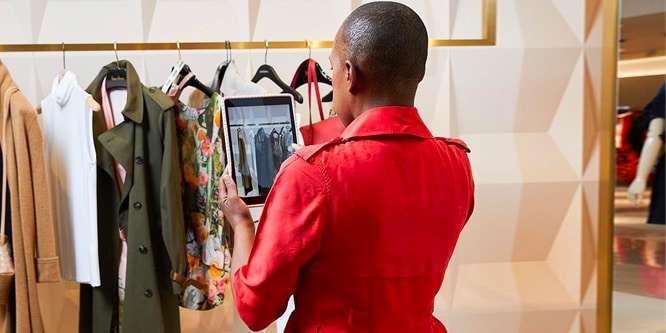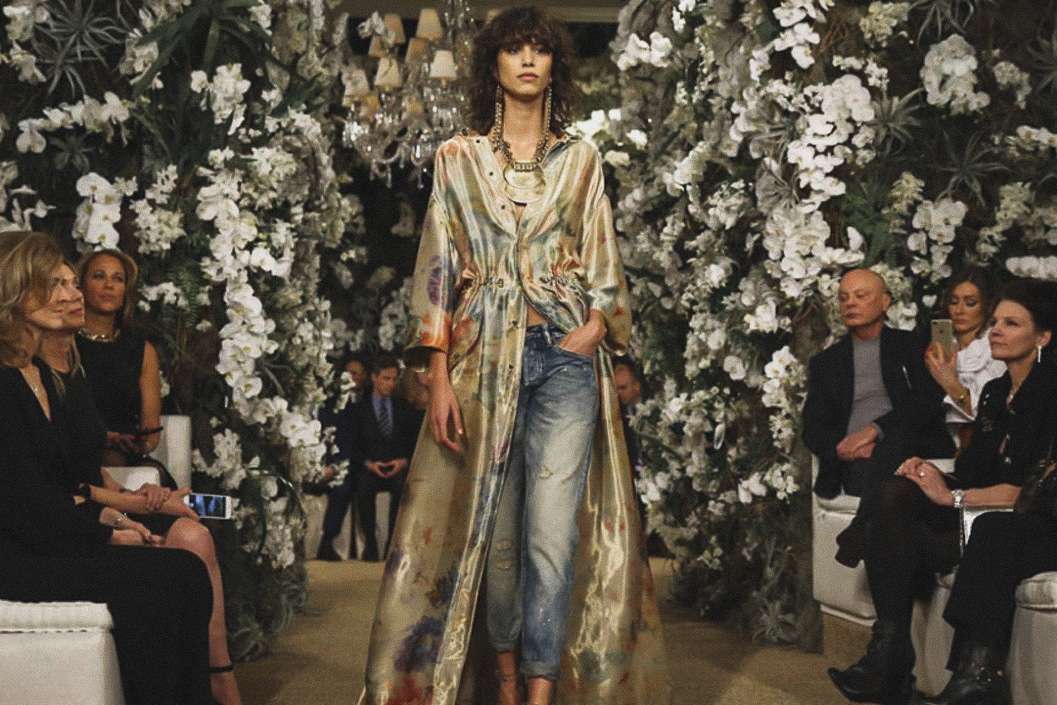Leading fashion brands and retailers including Saks Fifth Avenue, Neiman Marcus, Eileen Fisher, and Ralph Lauren have signed on to the sustainability focused Impact Index, created by the Responsible Business Coalition, Accenture and Vogue Magazine.
It’s not the first sustainable clothing label of its kind, but it may prove to be one of the biggest. The Resposible Business Coalition along with Accenture, Vogue, and more than a dozen fashion brands and retailers say the goal of of the Index is to empower consumers to make more informed purchasing decisions.
“It is not a green light or a red light. It’s merely a platform,” Frank Zambrelli, executive director of the Responsible Business Coalition at Fordham University’s Gabelli School of Business, said in a statement. “Nobody’s saying this is a better skirt than this one; we’re just saying, ‘This skirt was produced this way, with these certifications.’”
Products using the label must meet set standards or be approved by third-party organisations such as Canopystyle, Bluesign, and the Global Organic Textile Standard, the coalition says.
The new logo will appear digitally—on the brands’ websites for now. It may move to physical products eventually, the coalition says.
Consumers will see the digitial logo when they click on a product; it will show both environmental and ethical garment practices. Animal welfare, material sourcing, chemical use, and education and empowerment top the Index’s first areas of focus. The goal is to bring clarity to the certification landscape, establish effective data collection methods that can be used across the industry, and increase sustainability communication at the product level.
Empowering consumers
Moving the needle on consumer education is key, according to Cara Smyth, managing director and global sustainability lead for Accenture’s Retail industry group. “Every dollar is like a vote. The more consumers make their buying decisions on information about environmental and social issues, the more the industry reacts.”
The industry already features a number of labels and indexes—the group points to Remake’s Seal of Approval and Good on You’s ratings as similarly focused. But the coalition says they haven’t reached the widespread adoption or awareness critical to moving the industry toward more sustainable practices.
It says the biggest challenge is helping customers better understand environmental efforts. Corporate communications can be misleading and confusing; customers don’t often understand some of the claims or certifications.

According to Zambrelli, some of the biggest criticism over sustainability claims is brands deciding on their own criteria and measutements. It’s a key reason the initiative partnered with nonprofits. And likewise, the nonprofits need the industry to buoy the agenda to the customer.
“Without the brands and retailers, this wasn’t going to go anywhere. We all know, an NGO without the intervening industry is a lovely organisation saying wonderful things, but unfortunately never getting the platform to disseminate that information,” he said.
Textile Exchange, one of the Index’s partners, says increasing customer engagement with sustainable materials can come by clearer communication with the consumers so they better understand why they’re paying more and why it matters.
“A small percentage of consumers are aware and are asking for [more sustainable products], but we need to do more. We need to get consumers to send that clear market message: ‘We’re ready to shift out of a price-only paradigm, to really paying for the value of that product’,” said LaRhea Pepper, CEO of Textile Exchange.
The Index kicks off with Abercrombie & Fitch Co., Bonobos, Capri Holdings, J.Crew, JCPenney, Kenneth Cole, Neiman Marcus, Nordstrom, PVH, Saks Fifth Avenue, Selfridges & Co., Shinola, Macy’s, Gap, Tapestry, Eileen Fisher, Ralph Lauren and VF Corporation. More are expected to join in the coming months.
“We think [The Impact Index] going to be a game changer,” Pepper says. “We hope, as consumers understand the value, that they’ll start supporting value, rather than the cheapest price.”


